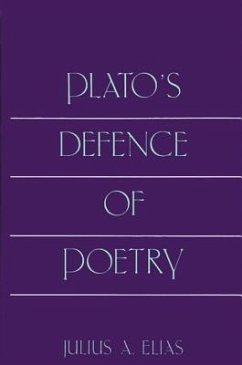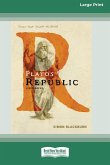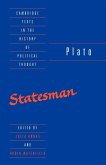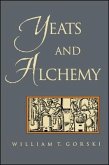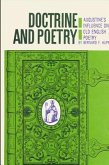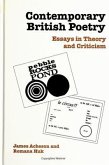Ignorant, irrational and irresponsible: these are the terms used by Plato when referring to poets. Yet the philosopher acknowledged that he was not insensible to the charms of poetry, and many would agree that Plato's myths are themselves poetry of the very first rank. In Plato's Defence of Poetry--the first full-scale treatment of the subject since 1905--Julius A. Elias demonstrates that Plato offers a defence of poetry in response to his own famous challenge. This study restores the myths to their proper place in the Platonic corpus by showing their methodological relationship to the dialectic and their substantive connection to Plato's theories of knowledge, ethics, politics, and aesthetics. While agreeing that for Plato, poetry must be harnessed to the service of truth and socially desirable values, Elias shows that poetry is indispensable to the philosopher: when the audience would reject a more obviously didactic approach, poetry makes accessible and palatable truths demonstrable by reason. Furthermore--and this is the most novel and important feature of this study--Elias argues that the myths embody the indemonstrable axioms of Plato's system. Plato was aware that in every system, including mathematics, certain fundamental presuppositions necessarily remain unproven. Rather than assert them dogmatically, Plato expresses these undercurrents poetically so as to capture their emotional persuasiveness while defining their relevance. In Plato's Defence of Poetry, the myths themselves are interpreted afresh in light of these claims.
Hinweis: Dieser Artikel kann nur an eine deutsche Lieferadresse ausgeliefert werden.
Hinweis: Dieser Artikel kann nur an eine deutsche Lieferadresse ausgeliefert werden.
